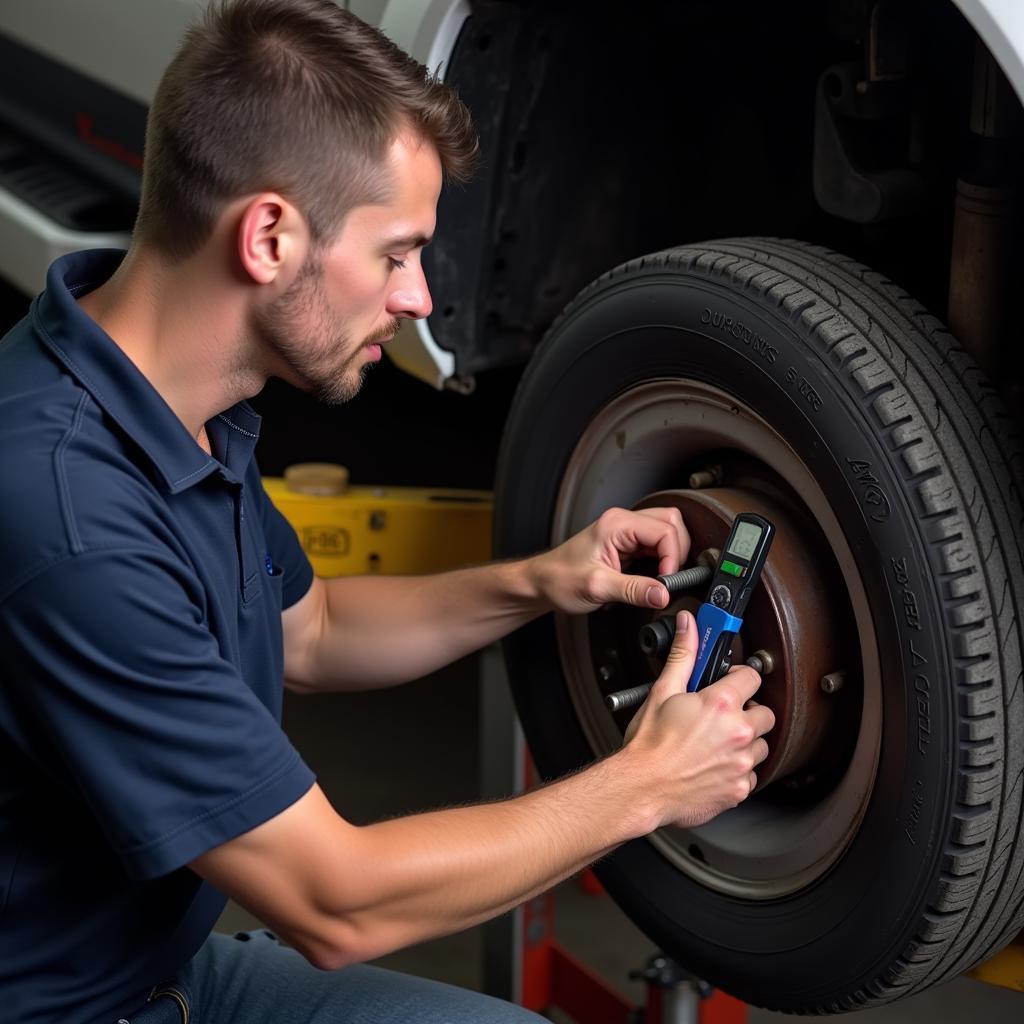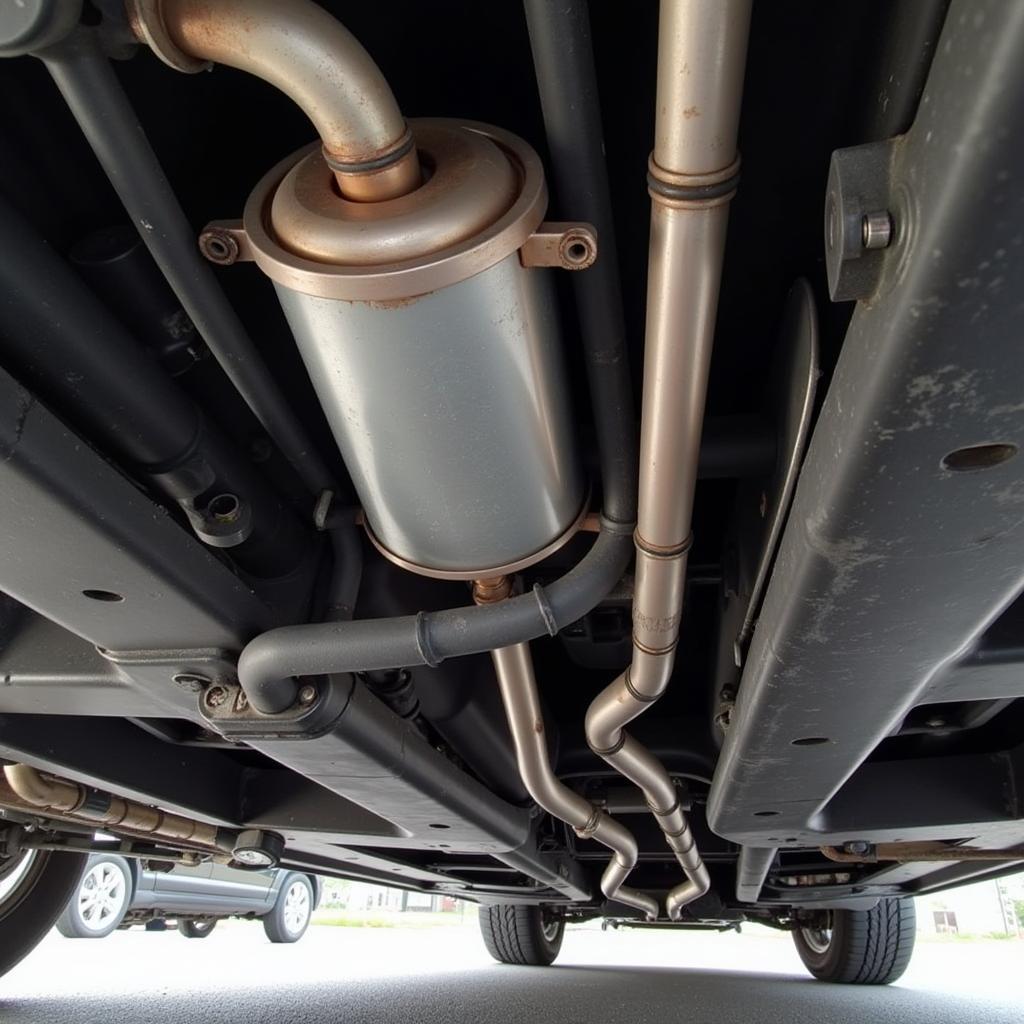If you’re driving a 2002 Ford truck and find yourself haunted by a persistent brake warning buzzer, you’re not alone. This issue is a common headache for owners of these vehicles. While the buzzer is designed to alert you of potential brake system problems, it can sometimes be triggered by minor issues that are relatively easy to fix. This comprehensive guide will walk you through the common culprits behind that annoying buzzer and provide you with practical solutions to silence it for good.
Understanding the Brake Warning Buzzer
The brake warning buzzer in your 2002 Ford truck is part of a safety system designed to grab your attention if it detects an issue with your brakes. There are a few reasons why this buzzer might activate:
- Low Brake Fluid: This is the most common reason for the buzzer. Your brake system relies on hydraulic pressure to function correctly. If the brake fluid level drops too low, air can enter the system, compromising braking performance.
- Parking Brake Engaged: It might seem obvious, but sometimes the simplest solution is the right one. The buzzer is designed to sound if you start driving with the parking brake even partially engaged.
- Faulty Brake Light Switch: Your brake lights and brake warning system are often interconnected. A malfunctioning brake light switch can not only prevent your brake lights from illuminating but also trigger the warning buzzer.
- Worn Brake Pads: Your brake pads are designed to wear down over time. When they reach a certain level of wear, a sensor in the brake pad will contact the rotor, triggering the buzzer to warn you that it’s time for a replacement.
- ABS System Malfunction: While less common, a problem with your Anti-lock Braking System (ABS) can also trigger the buzzer. This usually indicates an issue with the ABS control module, wheel speed sensors, or related wiring.
Diagnosing the Issue
Before you start tearing into your truck’s braking system, it’s crucial to accurately diagnose the problem. Here’s a step-by-step guide to help you pinpoint the source of the issue:
- Check the Parking Brake: Start with the simplest solution. Ensure your parking brake is fully disengaged.
- Inspect Brake Fluid Level: Locate the brake fluid reservoir under the hood. The reservoir will have a “Min” and “Max” marking. If the fluid level is low, add the correct type of brake fluid specified in your owner’s manual.
- Inspect Brake Lights: Have a friend press the brake pedal while you check if both brake lights illuminate. If they don’t, the brake light switch might be faulty.
- Check for Leaks: Carefully examine all brake lines, hoses, and connections for any signs of fluid leaks. A leak in the system can lead to low brake fluid and activate the buzzer.
- Inspect Brake Pads: If you suspect worn brake pads, it’s best to consult a mechanic. They can remove the wheels and inspect the brake pad thickness to determine if replacement is necessary.
Common Solutions
Once you’ve identified the root cause of your brake warning buzzer issue, you can take steps to address it:
- Adding Brake Fluid: If low brake fluid is the culprit, carefully add the correct type of brake fluid to the reservoir, bringing it to the “Max” line. Be cautious not to overfill.
- Replacing the Brake Light Switch: This is a relatively simple repair that most DIYers can tackle. You can find a replacement switch at most auto parts stores.
- Replacing Worn Brake Pads: If your inspection reveals worn brake pads, it’s crucial to have them replaced as soon as possible. Driving with worn brake pads compromises your safety and can damage your brake rotors.
- Addressing ABS Issues: Issues with the ABS system are more complex and often require the expertise of a qualified mechanic. They can diagnose the specific problem within the ABS system and perform the necessary repairs.
Seeking Professional Help
While some brake warning buzzer issues have straightforward fixes, others can indicate more complex problems. If you’re unsure about any aspect of diagnosing or repairing your brakes, don’t hesitate to seek help from a qualified mechanic.
 Brake Pad Inspection
Brake Pad Inspection
Prevention is Key
Preventing brake issues is always preferable to dealing with them after they arise. Here are a few proactive steps you can take:
- Regular Brake Inspections: Have your brakes inspected by a qualified mechanic at least once a year or as recommended in your owner’s manual.
- Timely Brake Fluid Flush: Brake fluid can absorb moisture over time, which reduces its effectiveness. Follow the recommended brake fluid flush intervals in your owner’s manual.
- Listen to Your Truck: Be attentive to any unusual noises, vibrations, or changes in brake pedal feel. These can be early indicators of potential brake problems.
Conclusion
A persistent brake warning buzzer in your 2002 Ford truck is a clear sign that something needs attention. By understanding the potential causes, systematically diagnosing the issue, and addressing it promptly, you can ensure your safety and enjoy peace of mind on the road. Remember, when it comes to brakes, prevention is key, so stay proactive with maintenance and inspections.

